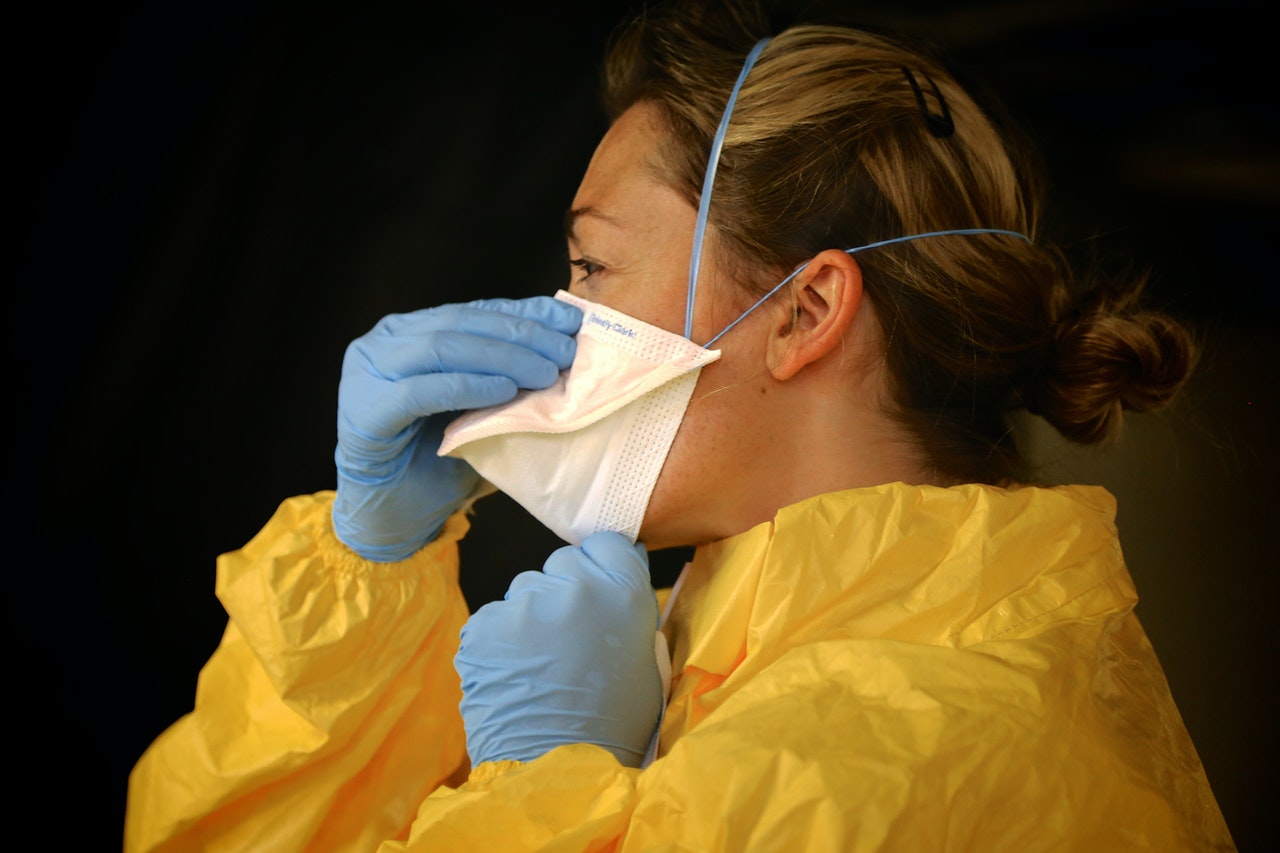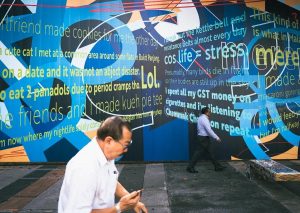Top image: CDC/Pexels
“We face plenty of abuse on the job that goes unreported,” Ally recounted. Ally is just one of many pandemic nurses working in local hospitals.
“I remember once an elderly makcik who had been admitted for attempted suicide in the morning but refused to have her vitals taken; she just wanted to be warded. She didn’t want to talk to anyone except me, so I took her in and acceded to all her requests, spending a good chunk of time together. I thought we had formed a sort of a bond. But due to the long waiting hours, she grew increasingly impatient. Towards the end of my shift, she called me over, only for her to splash a cup of water in my face while calling me a slut in Malay.”
ADVERTISEMENT
Speaking to nurses from different hospitals around Singapore, this was just one of several anecdotes that recount their daily abuse.
While the extension of Covid-19 measures has warranted unpopular public opinions, some accusing the MTF of having a ‘flip-flop’ approach, for our dear nurses, this was just a nod towards the grim reality of a healthcare system at its limits.
No proper breaks
It was always an open secret that hospitals were understaffed even before the pandemic. Mae, formerly a general ward nurse who now works at the A&E department, shared that previously in the wards, she managed about eight patients. But now, having moved to A&E, that ratio has risen to 1:20.
By Ministry of Manpower (MOM) standards, it is mandated by law that in any line of work, a minimum of 45 minutes break should be given if the work exceeds six consecutive hours. For nurses, this break is never guaranteed as patient admissions vary greatly.
Ally shares that her breaks now are at most 15 minutes long because there isn’t sufficient staffing on hand when admissions reach maximum capacity.
“Most of the time, it’s just a few of us handling all the patients in A&E. We can’t afford to take long meal breaks. The longer we are gone for, the longer our colleagues suffer,” she says.
Before streamlining isolation protocols, Mae recalls how throngs of patients would come into A&E just because their Antigen Rapid Test (ART) self-test kits tested positive for Covid-19.
“In this pandemic, we can never be sure of anything, I’ve seen admissions hit over 150 in a day, and there are days where it’s barely 20,” she adds.
The burden of the PPE
Another significant change brought about by this pandemic was Personal Protective Equipment (PPE), which includes surgical masks, gloves, goggles, face shields, shower caps, gowns, and boots for nurses.
According to Ally, the donning and removal of the PPE is a time-consuming process that most people overlook. The precious break time they are left with is almost always halved as they take time to gear up.
“Out of a 30-minute break, a good half of it is spent on taking off and wearing the PPE. Most of the time, we’re left with at most 15 minutes of rest.”
Unlike any other job, the PPE has become their second skin, and the resentment of being in one throughout the entire day has taken a toll on those donning it.
ADVERTISEMENT
“Before the pandemic, when there was no need to wear PPE, I could still go out after my shifts. Nowadays, I just want to head home,” says Elena. “By the time I get back, I’m just looking forward to getting some rest before the cycle repeats itself.”
The prolonged hours nurses have to bear in their uncomfortable PPE have left unsightly marks on their faces as the equipment digs into their skin. The mandatory N95 masks that the nurses wear all day can also have adverse effects such as causing dizziness which could compromise both the patient’s and their safety.
Unskilled labour
Working hours for nurses have also extended, with shifts going up to a gruelling 11 hours and becoming increasingly irregular.
Ally shares with me her schedule, which shows her working up to seven days in a row, managing both the morning and night shifts back to back.
Having joined as a pandemic nurse only a few months ago, she shared, “I’m still coping, but I can’t imagine how it must be for those who have been here since the start of the pandemic. There is always a steep learning curve as a staff nurse to-be because we lack skilled staffing.”
The trickling repercussion of the lack of skilled labour has materialised itself as a burden for current nurses to step up and learn everything as quickly as possible.
“Nowadays, when new nurses come in, I try to help them as much because I know how it feels to be lost and thrown into such a fast-moving environment,” Elena recalls. She can empathize with the new hires, especially since her first few months on the job were one of the most stressful. “I was like them once, after all.”
With so much to learn in such a short time, nurses undoubtedly experience burnout easier and faster than before.
Entitled patients
But the biggest stressor of them all are the patients. Ally, who works in her hospital’s A&E department, shared that it isn’t uncommon for patients to display entitled and selfish behaviour because they feel entitled to whatever they are paying.
Often, nurses are told to accommodate their needs, even if it means being the target of both physical and verbal abuse.
“We don’t have the right to say no. Unlike restaurants, we can’t deny treatment. So we just deal with them regardless of how unreasonable they’re behaving,” Ally recounts. Someone once demanded a cup of Milo from her when the elderly patient she was attending was having breathing difficulties.
When the demands of unreasonable patients are not met, nurses suffer the brunt of invisible abuse, which often goes unreported. Being bitten, shoved, pushed, and enduring tirades of insults are all just part of the job.
But can you blame the patients? As Singapore grapples with the pandemic, the MTF is constantly revising its rules and stance to try and find the best possible way to deal with the virus. A sense of dread and irritation has since plagued Singaporeans alongside all these changes, a common phenomenon known as pandemic fatigue.
In such a climate, patients have become easily frustrated and agitated when they are not attended to. Nurses are also susceptible to pandemic fatigue. On top of that, they are tasked with managing patients’ emotions alongside the sheer amount of daily workload.
We all have experienced this phenomenon in some ways, but perhaps our front-liners are the ones that have felt it most profoundly.
A hotline no one uses
To help alleviate the buildup of stress at work, the nurses I spoke to have shared that there is an anonymous and confidential hotline where staff can call and share their grievances at their hospitals.
Ironically, of all of the nurses I spoke with, none have used the hotline or knew anyone that has.
“Nobody uses it because we don’t know how confidential it is. What if our supervisor knows about it? Wouldn’t that create a conflict of interest?” says Ally when asked why she doesn’t use it.
The general public often does not have the slightest idea of the true nature of their jobs, which makes it hard for the average Joe to empathise and understand their daily struggles.
“Mental health within the public service sector, especially amidst a pandemic, carries a significant stigma,” adds Elena. “If we can’t take care of ourselves, how are we expected to take care of others? So most of the time, we share our grievances amongst colleagues.”
Both Ally and Elena further revealed how their superiors have instructed them not to speak about their work online.
Ally reads out a broadcast message from the Public Relations team to me. “The hospital sent out a message the other day telling us to refrain from talking about our problems online because they want us to maintain a level of professionalism.”
Hospitals keep close tabs on their nurses to make sure they don’t speak out of turn, which only exacerbates the problem—the lack of a proper support system. Seeking comfort in the solidarity they find in fellow nurses has become their only outlet.
Compensation
Earlier this year, Senior Minister of State for Health Koh Poh Koon said during a budget debate in Parliament that healthcare workers should be compensated handsomely to ensure retention. Nurses can look forward to a five to fourteen per cent increase in their base salary over two years starting from July.
In the same vein, Minister Ong Ye Kung revealed on November 5th that all staff of public healthcare institutions will receive a special award amounting to S$4000 in recognition for their hard work.
Speaking to the nurses about this, they revealed that they are being assessed on a grading scale that determines their pay raise and bonuses.
“Bonuses and pay raises are always welcomed, but sadly it isn’t enough to stop people from resigning,” says Mae, who received a token S$200 pay raise as promised by the government in July.
The monetary compensation is a gesture appreciated by many. Still, the lack of sufficient rest and gruelling working conditions remains the main push factor when it comes to resignation.
Call for Action
When asked for their views on how the government is handling the pandemic, the nurses were mainly split between two camps.
“I would like to think that our government knows what they’re doing,” says Elena. She remains hopeful for the uncertain future ahead. “They’re after all our leaders that are given all the facts and figures to make the best possible choices.”
However, for nurses like Ally, she feels that there is some time-lapse in their statements.
“Before we entered the Stabilisation Phase, at the hospitals, we already saw signs of a spike in cases. We are supposed to have only two Covid-19 patients in our isolation wards, and the rest should be ‘normal’ ones. Still, in reality, we only had two patients warded for non-Covid-19 related issues. In contrast, the rest were Covid-19 patients,” says Ally, who feels that our leaders are not abreast of the situation on the ground.
“We saw it coming first; we knew we were going into some type of lockdown again.”
For our nurses, the daily admissions and death toll every day serves as a daily reminder of the war against Covid-19.
Ally believes that people on the ground should be more involved when it comes to decision making.
On the other hand, Mae felt that Singaporeans are generally misinformed about isolation protocols, unnecessarily straining the hospital’s resources when they self administer to the A&E.
Moving Forward
On November 1st, Senior Minister of State for Health Janil Puthucheary took to Parliament to shed light on the resignation rate in the healthcare sector.
As many as 1,500 medical staff have resigned during the first half of the year compared to 2,000 annually pre-pandemic.
The toll on our nurses will eventually boil over, with high turnover rates resulting from a feeling of exacerbation. Many are duty-bound to extend their care to others during this pandemic while having little time to care for themselves. It was a matter of time before exhaustion crept it.
As we navigate the path of an uncertain and long future ahead, there is a gloomy consensus amongst the nurses that something has to change because the ugly reality of the pandemic is on show for all to see.
On the one hand, Elena asks that their breaks and rest days be respected because no amount of pay raise is going to incentivise a tired worker. On the other, Ally wishes for policies to be in place to protect them, like how in restaurants they reserve the right to refuse service to abusive customers.
“We don’t need your claps or hashtags. We just want a break to breathe. And to our patients, some empathy would go a long way.”







